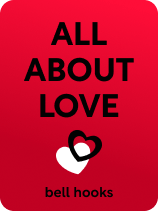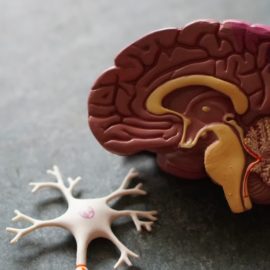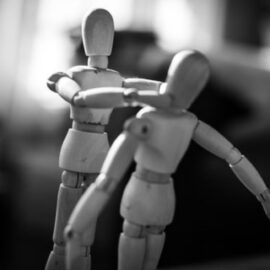

This article is an excerpt from the Shortform book guide to "All About Love" by bell hooks. Shortform has the world's best summaries and analyses of books you should be reading.
Like this article? Sign up for a free trial here.
Do you have a good idea of what love is? What’s considered unhealthy love?
Unhealthy interactions between family members can distort people’s version of love. bell hooks’s book All About Love says these interactions can also create a cycle of unhealthy love.
Below we’ll discuss what love isn’t so you can have a better understanding of what love truly means.
Dysfunctional Love
In her book, hooks explains what love is (“The will to extend oneself for the purpose of nurturing one’s own or another’s spiritual growth.”) but also explains what love isn’t. More often, love is distorted to emphasize the importance of power and control over reciprocity and trust. hooks explains that people often develop a harmful understanding of love based on interactions in their families of origin. For example, in some cases, children grow up experiencing verbal and physical abuse that’s justified as love, while other children are raised in overly permissive households where they’re allowed to do or get whatever they want, as if that’s an act of love. hooks argues that both scenarios contribute to a skewed understanding of love rooted in the dynamics of reward and punishment rather than a genuine commitment to another person’s spiritual growth.
| Examples of Dysfunctional Love Like hooks, Erich Fromm (The Art of Loving) argues that the type of love most people experience is dysfunctional because it’s transactional—we give only in anticipation of getting something in return. He outlines three types of dysfunctional love: 1. Love as sexual desire: This is the model of love proposed by Sigmund Freud, in which love is merely the expression of sexual desire—specifically, every man’s desire to sleep with every woman he can. Freud believed that all other forms of love were diluted versions of this primary desire. According to Fromm, this empty desire is a form of false love because it doesn’t involve nourishment, responsiveness, acceptance, or genuine understanding. 2. Love as partnership: A second form of false love is the idea of love as a partnership, in which two people love each other solely to increase their odds of succeeding in a capitalist society. While they care for one another, their primary loyalty is still to themselves—they invest in the relationship because it serves their own purposes. This kind of love mimics a business partnership. 3. Love as misplaced parental attachment: Another form of false love is misplaced parental attachment. When one or both partners have unresolved parental attachments, they’ll seek a form of parental love from each other rather than genuine romantic love. However, because romantic partners typically can’t give the type of maternal or paternal love these people crave, they’re inevitably disappointed with their romantic relationships. |
hooks doesn’t blame families for not expressing love in healthy ways: She understands that many caregivers have learned a distorted version of love from their own families. To break this cycle of unhealthy love, she explains, we must learn and teach a new definition of love, one that centers spiritual growth and balances independence and connectedness to allow a positive self-image to flourish within a functional family environment. By embracing this new understanding of love, we can create a nurturing atmosphere conducive to personal growth and well-being.
(Shortform note: The transfer of dysfunctional patterns from one generation to the next is also known as generational trauma and can impact individual families or groups of people who’ve experienced trauma, oppression, or other forms of abuse. Recognizing that generational trauma isn’t an inherent destiny but rather a learned response to challenging circumstances provides a sense of agency. Therapeutic interventions and support networks rooted in this knowledge can help individuals disrupt the cycle of trauma, fostering resilience and promoting the development of more nurturing, supportive, and positive relationships.)

———End of Preview———
Like what you just read? Read the rest of the world's best book summary and analysis of bell hooks's "All About Love" at Shortform.
Here's what you'll find in our full All About Love summary:
- How a commitment to love can reshape our society for the better
- The power of love from a feminist perspective
- Why romantic love is not the most important form of love






